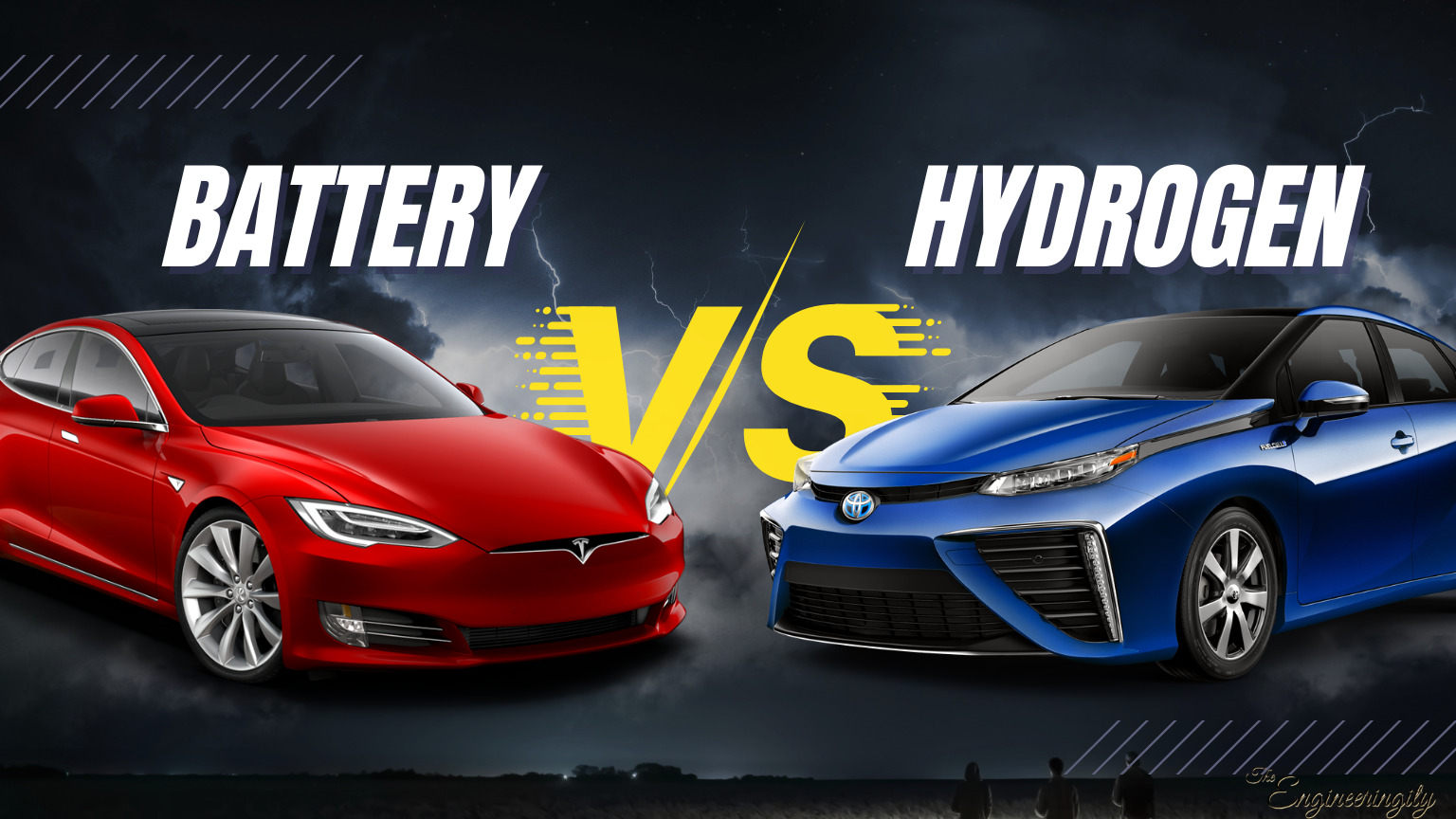In the quest for a more sustainable future, the debate over the best alternative to traditional gasoline-powered vehicles has gained significant momentum. Two leading contenders in this arena are hydrogen cars and electric cars. But which of these innovations holds the key to a greener, more eco-friendly transportation future? This article will explore the merits and drawbacks of both options to help you decide which one is more sustainable.
Hydrogen Cars vs Electric Cars – Which Is More Sustainable?
The battle for sustainability in the automotive industry is more pressing than ever. As the world grapples with climate change and the need to reduce greenhouse gas emissions, we must examine all possible solutions. Hydrogen cars and electric cars have emerged as frontrunners in this race towards sustainability. Let’s delve deeper into the comparison to determine which one deserves the sustainability crown.
The Environmental Impact
Hydrogen Cars
Hydrogen cars are known for their minimal environmental impact. They produce zero emissions at the tailpipe, emitting only water vapor as a byproduct. This makes hydrogen a promising solution for combating air pollution and reducing greenhouse gas emissions. However, the sustainability of hydrogen as a fuel source is a matter of concern. Most hydrogen is currently produced from natural gas, which is a non-renewable resource and contributes to carbon emissions.
Electric Cars
Electric cars are also praised for their low emissions, particularly when charged with electricity from renewable sources. They produce zero emissions at the tailpipe, making them an excellent choice for urban environments where air quality is a concern. The sustainability of electric cars largely depends on the source of their electricity. If the electricity comes from renewable sources like wind, solar, or hydropower, electric cars can be exceptionally sustainable.
Energy Efficiency
Hydrogen Cars
Hydrogen cars are often criticized for their energy efficiency. The process of producing hydrogen, compressing it, and transporting it to refueling stations can be energy-intensive. In comparison, electric cars are more energy-efficient, as they directly convert electricity into motion with minimal energy loss.
Electric Cars
Electric cars have a clear advantage in terms of energy efficiency. They convert a higher percentage of the energy from the grid into movement, making them a more sustainable choice when the electricity source is clean and renewable.
Infrastructure and Convenience
Hydrogen Cars
Hydrogen refueling infrastructure is not as widespread as electric charging infrastructure. This can be a major drawback for potential hydrogen car buyers, as finding a nearby refueling station can be challenging in many regions.
Electric Cars
Electric cars have the upper hand when it comes to infrastructure and convenience. Charging stations are more abundant and readily accessible in most places, especially in urban areas. This accessibility makes electric cars a more convenient choice for daily use.
Production and Costs
Hydrogen Cars
The production of hydrogen fuel cells and their associated infrastructure can be expensive. As a result, hydrogen cars tend to be pricier than their electric counterparts. However, economies of scale and advancements in technology could potentially lower the cost of hydrogen production in the future.
Electric Cars
Electric cars have become more affordable over the years, thanks to advancements in battery technology and increased production. The cost of electric vehicles is generally more competitive than that of hydrogen cars.
Range and Performance
Hydrogen Cars
Hydrogen cars typically have a longer driving range compared to electric cars. Refueling a hydrogen car is also faster, taking only a few minutes compared to the longer charging times of electric vehicles.
Electric Cars
Electric cars have made significant progress in extending their driving range and improving charging times, but they still generally fall short of the range provided by hydrogen cars. However, electric vehicles are catching up quickly in this regard.
The Future Outlook
Both hydrogen cars and electric cars have their strengths and weaknesses, and the sustainability of each depends on various factors. The future of sustainable transportation likely involves a combination of these technologies. Hydrogen may play a more significant role in long-haul and heavy-duty transportation, where electric charging infrastructure is less developed. Meanwhile, electric cars are better suited for everyday commuting and short trips, particularly in urban areas.
In conclusion, the sustainability of hydrogen cars vs. electric cars depends on a multitude of factors, including the source of energy, infrastructure, and cost. Both technologies have a role to play in reducing our carbon footprint and building a greener future. The key is to make choices that align with the broader goal of sustainability, regardless of whether you opt for a hydrogen or electric vehicle.
The debate over “Hydrogen Cars Vs Electric Cars Which Is More Sustainable” is ongoing, and the answer may evolve as technology and infrastructure continue to develop. What’s certain is that the future of transportation is moving toward greater sustainability, and the choice between hydrogen and electric cars is an essential part of that transition.
